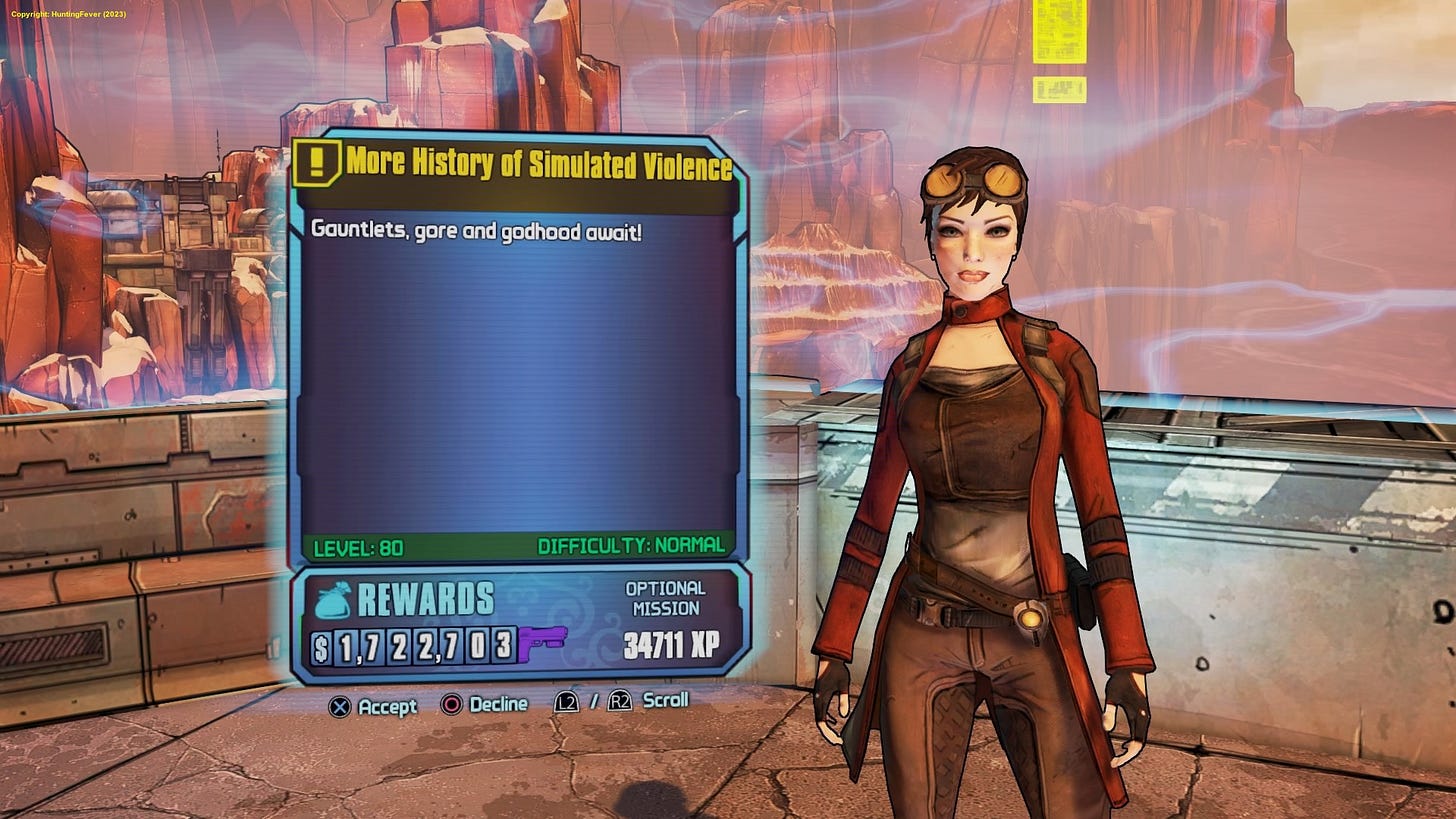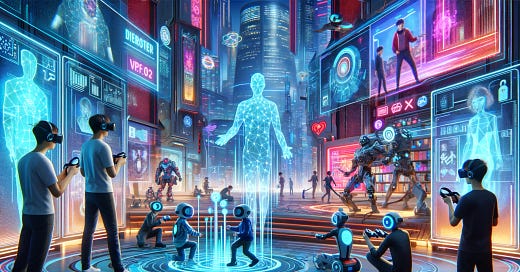With OpenAI using Scarlett Johansson’s voice, it’s hard not to feel AI has entered its “Her” era, becoming increasingly nearer to human sentience. Evidence of this is growing faster than Nvidia’s stock price: As Elon Musk has learned, social media chatbots are increasingly indistinguishable from humans; customers frequently don’t know if they’re chatting with a person or a bot when using customer service platforms; And, perhaps weirdest of all, the line between Hollywood actor and computer-generated image is becoming increasingly blurred as studios digitally de-age, slim, fatten, or altogether reconstruct characters.
All of this has, of course, sent the AI community into ecstasy with predictions. Certainly, the technical limits of AI are relevant here - while we all have friends who are a little crazy, it’s not clear that we would be willing to tolerate a friend who hallucinates quite as much as ChatGPT does. But these limits are time-bound. AI is improving at a rapid pace, and as it does, it will sound more and more like our saner, albeit very online, friends. The more interesting question is the social limits of AI; are there things that humans will never want AI to do?
This might seem like a sort of academic question, but it has huge real-world implications. First, if humans can come to value AI friendship as they do human friendship, social media, and specifically the metaverse, will become much more valuable. If Mark Zuckerberg can spawn an infinite number of bots in the metaverse and people enjoy speaking with those bots just as much as they do actual humans, it’s hard to see why anyone would ever leave the metaverse. After all, who would turn down a beautiful imaginary world with crowds of people just like them? Second, at the other end of the spectrum, aging populations struggle with loneliness (e.g., Japan). Already, robots are being used to aid this by allowing seniors to commune with robots in lieu of family. If this works, it could vastly prolong lifespans and quality of life.
But are humans willing to substitute human intelligence for artificial ones? This question can be thought of as a battle between the academic disciplines of psychology and sociology. For psychologists, any intelligence that responds to a human in a “human way” can fulfill the urge people need for connection. As evidence of this, the field often points to humans’ remarkable ability to anthropomorphize inanimate objects (Wilson the volleyball, from Castaway, being the canonical example).
For sociologists, though, this is a very strange prediction. Sociologists, as their name suggests, view humans as part of a social system in which people exist in a social order. Artificial intelligence, not being human, is not part of this order and so will always be unsatisfying. When Siri tells you, “You’re beautiful,” what does that mean? How comforting can that be? From this perspective, there are significant limits to the sense of community and fellowship AI can provide.
Video games as prophecy
While only time will tell for sure (for better or worse, OpenAI appears to have adopted a FIFO strategy on this), video games provide us with a window to the future. Since the 1950s, video games have created online, digital worlds with many artificially intelligent characters, ranging from Pong paddles to Princess Peach to Pokémon. Relative to the metaverse or a retirement community, the worlds that video games inhabit are narrow, especially in the earlier years. In the world of Pong, for example, the “world,” such as it is, consists entirely of a tennis court. So, the AI can interact “like a human” in the sense that it, too, can hit a ball back and forth.

But, as games have evolved, so too have the worlds they create and the complexity of the characters. Today, we have non-playing characters (NPCs) that follow, guide, and interact with human players throughout the game. And, increasingly, the open worlds of something like “Grand Theft Auto” are increasingly reminiscent of Zuckerberg’s vision of the metaverse, albeit a lot less family-friendly one.

As games have evolved, artificial characters have become increasingly complex, and players have become increasingly attached to them. In one of my favorite game series, Borderlands, meeting the wide cast of characters, joining them on their side missions, and seeing their story arch is one of the best parts of the game. I, like so many people, do feel some sense of community when I log in and see the “crew” standing around, ready to blast to another planet in search of the MacGuffin.

But, throughout the history of video games, computer characters have never been much more than a side quest. Arguably the earliest video game, Computer Tennis, was designed for humans to play against each other. Arcades developed in much the same manner. Atari proudly boasted two controllers, Nintendo 64 offered four, and PlayStation ruled them all with its online multiplayer capability. Far from being generational, today, the biggest games on the planet are games like Fortnite, which allow millions of people to play against each other at the same time.

The odd thing about multiplayer video games, especially ones where players compete online, is that it is nearly impossible to tell if you are playing against a computer or a human. Epic Games, which makes Fortnite, or Blizzard, which makes World of Warcraft, could easily make bots and pawn them off as humans, much as the infamous online dating website Ashley Maddison did for would-be adulterers.
This raises an interesting question: if I cannot tell whether the player I’m playing against is human or not, why does it matter? Whether it’s hitting a ball across the table in Pong, defeating the opponent in Street Fighter, or being the last one standing in Fortnite, if the opponent makes the same moves as a person, why would a player care?
The answer is status. While playing against a computer can simulate a human relationship, it does not confer status and, therefore, will always feel somewhat empty. Consider the “Golden Age” of video games of the 1980s. Many of these games, like Tetris, are only single player. But, as shown in the excellent Netflix documentary High Score, the motivating factor for these arcade classics was the leaderboard, which created a very literal, highly visible status hierarchy. Victory against the computer is only meaningful to us if it tells us something about our ability to beat other humans.
Chess is the ultimate example. If I tell you, “I beat the computer in chess today,” the natural question is, “Well, how hard was it,” meaning, “Had the computer been a person, how good of a person would you have beaten?” To answer this question, chess has gone to exceptional lengths to quantify players and computers so that one always knows where one is in the social order. E-sports work much the same way. Why do we need e-sports? Couldn’t we just play against the computer? In fact, no. That would be meaningless.
Living in the Blade Runner timeline
Does this mean that the psychologists are flat wrong? No, not exactly. We still like our NPCs, and we like them working with us. Sonic needs Tails, Mario needs Luigi, and we will need our bots (I, for one, need Grammarly). But while they can help us, they cannot create meaning for us.
This outcome was portrayed pointedly in a scene from the more recent Blade Runner movie in which Ryan Gosling’s character loves his AI assistant, played by Ana De Almas. Though he appears to be deeply in love with her, even getting seduced by her in a strange, awkward moment, when Gosling’s character sees a different version of her bot seducing someone else, the romance is gone as he realizes that her attraction to him is not unique but programmed. Ultimately, her affection towards him tells him nothing about himself. Though the ending of the moving somewhat walks back the poignancy of this point, it nonetheless encapsulates the human/AI gap.
For this reason, I’m skeptical that logging into the metaverse and speaking with sycophantic bots that cheer for our same sports teams, like our same TV shows, and tell us we really are sexy will be terribly gratifying. Much like Ashley Madison or X, platforms can get away with this if there is a veil of ignorance, i.e., we know there are bots, but we can tell ourselves that it wasn’t the bots who liked our posts - the real humans favor us! Once the veil is gone, however, so too is the sense of confidence and status we get from the interactions and, therefore, the meaning that comes from the activity.
For the start-ups, developers, and investors looking to capitalize on the future, the history of video games strongly points to a more social future, not less. Applications that enable us to connect more deeply with known humans and, ideally, to move up our position in society relative to them will win out those that try to simply replace human relationships altogether, regardless of how advanced AI gets.




